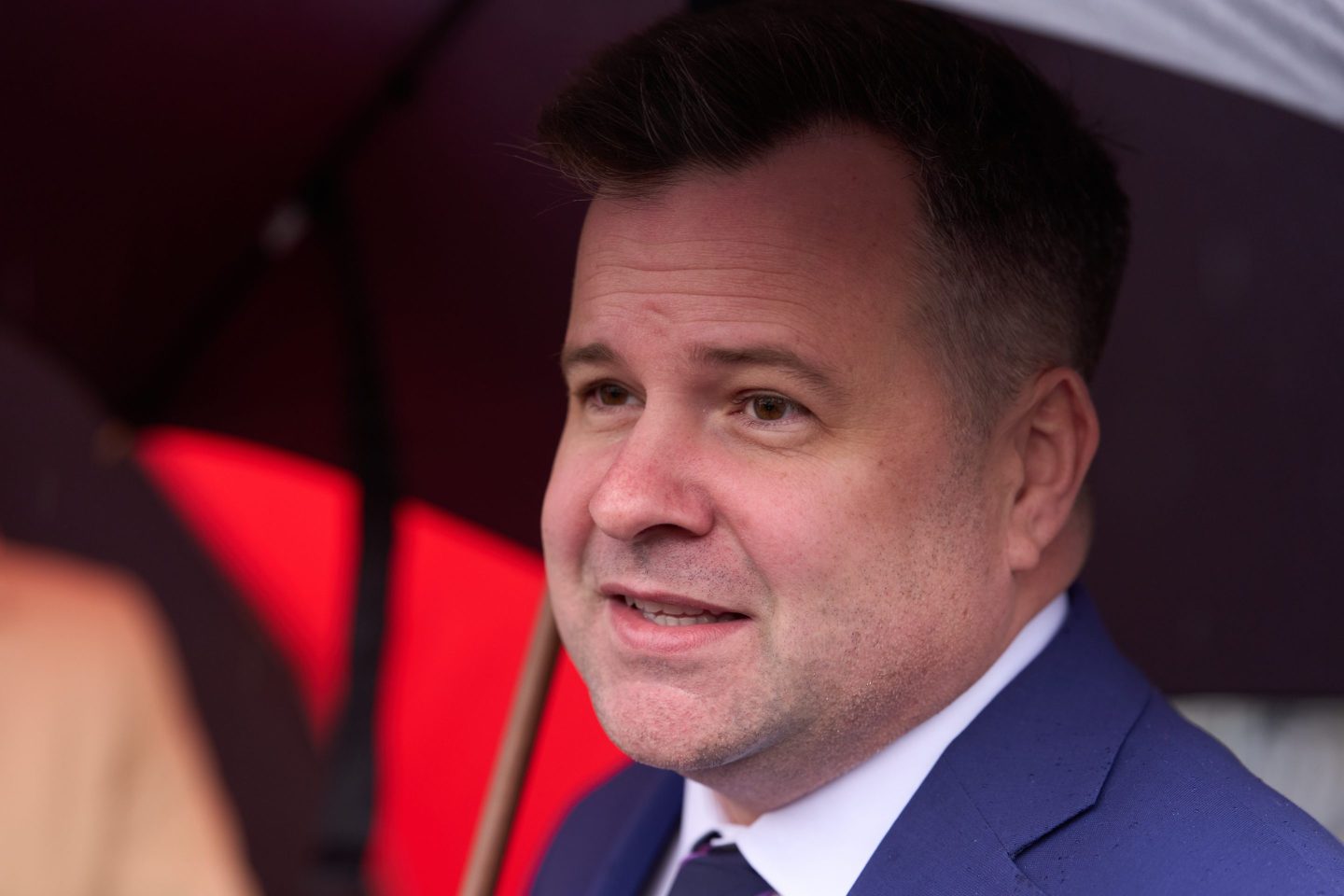As President Donald Trump moves to withhold over $2.2 billion in federal funding from Harvard University for its refusal to comply with a list of demands many regard as unconstitutional, some say Harvard should simply tap its $53 billion endowment to make up the shortfall. But a higher education finance expert says it’s not as simple as making a few withdrawals.
The standoff between Trump and Harvard comes as the White House is seeking to flex control over higher education, including by dictating what schools teach, and whom they hire. Last week, it sent Harvard a five-page letter that threatened to pull federal funding if the private university did not screen and change practices for international student admission; shutter all diversity, equity, and inclusion programs; and “audit the student body, faculty, staff, and leadership for viewpoint diversity,” among other demands.
“No government—regardless of which party is in power—should dictate what private universities can teach, whom they can admit and hire, and which areas of study and inquiry they can pursue,” Harvard’s president, Alan Garber, wrote in response.
Almost immediately, the White House responded by freezing some of the federal funding the university uses primarily for research, and is reportedly considering other actions, like revoking the institution’s tax-exempt status and withholding another $7 billion from affiliated hospitals.
While Harvard’s famous endowment seems to offer an obvious backstop, the school’s ability to tap into it is being oversimplified on both sides, says Sandy Baum, a nonresident senior fellow at the Urban Institute who specializes in higher education financing.
“When you hear the size of Harvard’s endowment, it sounds like, well, they could do whatever they want to, right?” Says Baum. “That’s not true. It’s not a $50 billion bank account.”
But the school has some options, she says.
“The purpose of the endowment is to allow Harvard to maintain its success as an educational institution. And if that success is under threat because the government is threatening to take over all of its decision-making, Harvard needs to protect itself,” she says. “There is no better use for its endowment funds than to do that.”
Neither the White House nor Harvard responded to Coins2Day’s request for comment on the matter.
What is Harvard’s endowment?
An endowment is a permanent investment fund—typically composed of cash invested in stocks, bonds, or other investments—that is set aside to fund the institution’s mission in perpetuity (in Harvard’s case, teaching and research). But most of the funds in an endowment come from donations that have specific strings attached to how the money can be used; it is not simply one giant pile of money, but rather many different individual accounts put toward different purposes. Harvard says its endowment is comprised of over 14,000 funds.
The interest earned helps fund things like professorships, financial aid programs, and scientific research. For the fiscal year ended in June 2024, Harvard’s endowment distributed $2.4 billion, or over a third of the institution’s total operating revenue in that year, according to the school. The rest of Harvard’s funding comes from federal and nonfederal research grants, student tuition and fees, and other donations. Around 11% of revenue comes from the federal government, put toward research on things like AIDS and cancer.
The overwhelming majority of funds that make up Harvard’s endowment are donor-directed to specific programs, departments, or purposes (dedicated scholarships, named professorships, etc.), and must be spent in accordance with terms set forth by the donor. Payout from these funds can only be spent in support of the fund’s designated purpose.
Around 20% of Harvard’s endowment is unrestricted, meaning the university has more latitude in how it can use those funds. The vast majority is tied to specific programs, departments, or purposes; 80% is tied to one of Harvard’s 12 schools (public health, law, medical, education, etc.). All that said, Baum notes that Harvard has more leeway than that breakdown might indicate.
“There’s money available for emergencies, and this is an emergency,” she says. “It’s really clear that it makes sense for Harvard to say, we can use some of our resources to make sure that we maintain ourselves as the educational institution we pride ourselves in being.”
This is an emergency, Baum says, because if Harvard agrees to the Trump administration’s list of demands, it would cease to exist as the same institution. The school can spend down some of the funds it never would have considered spending otherwise to maintain its independence.
That said, hard choices will still need to be made. The $2.2 billion in funding pays for research labs and jobs, meaning cuts would likely need to be made. The school has pursued a few other measures, including instituting a hiring freeze and seeking to raise $1.2 billion in the bond market. Baum says Harvard also has the ability to borrow money and sell other assets.
Still, these are more short-term plays, says Baum. It is unlikely the university could replace all federal dollars long term; it would eventually spend down its endowment. With a legal battle with the federal government very likely on the horizon, it also has to account for those expenses. And while Harvard has a large endowment, it’s also an enormous institution with many different parts, including hospitals, research labs, and more graduate students than many of its peers.
“I don’t want them to lose any research labs, but they could lose a few research labs and go on being Harvard University,” she says. “Whereas, if they had to do all the things on that list of demands, they really wouldn’t be the same institution anymore.”













